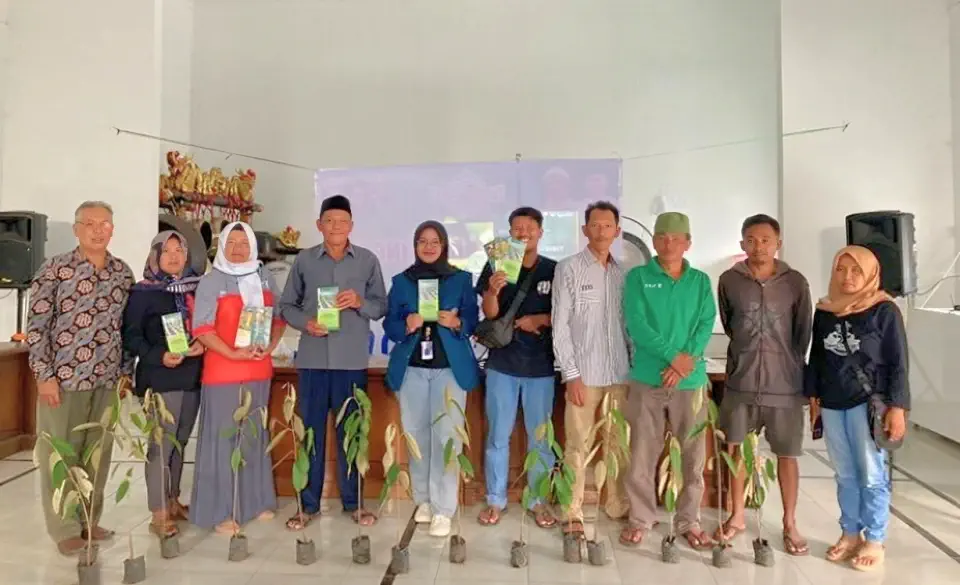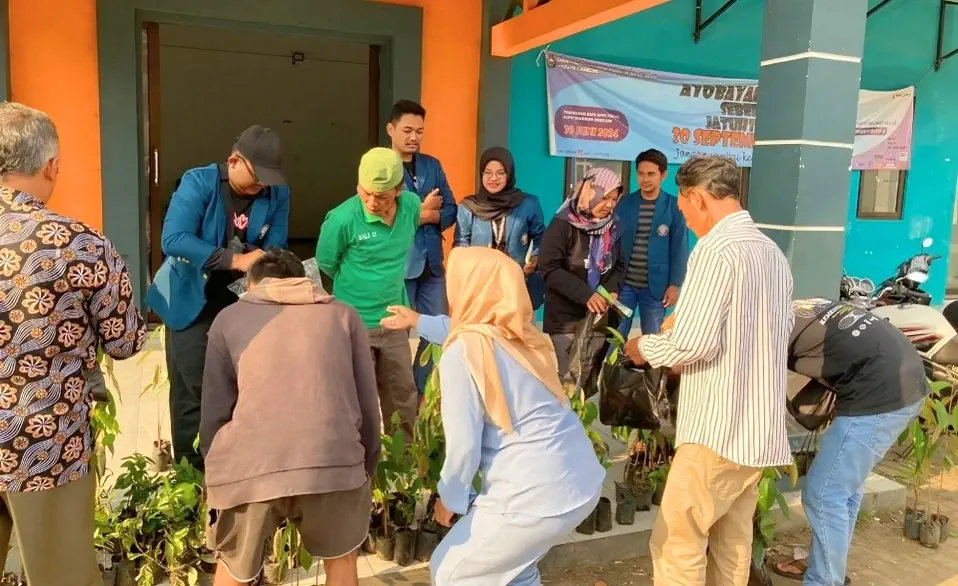Universitas Diponegoro KKN Team II 2023/2024 students in Pagergunung Village, Bulu Subdistrict, Temanggung Regency, from the Public Administration department, introduced the ‘Free Seedling Program’ from the Ministry of Environment and Forestry (KLHK) to the residents of Pagergunung Village, Temanggung Regency. This program was chosen considering the economic dependence of the community on tobacco farming, which often faces price fluctuations. Through this initiative, villagers are expected to utilize the free food crop seedlings provided by KLHK as an alternative source of income.
The introduction of the KLHK program, held at the Pagergunung Village Hall, was attended by the heads of farmer groups (Gapoktan) and local residents. KKN students explained the program’s importance in supporting income diversification, particularly in Temanggung Regency, known as a center for tobacco commodities. Given the instability of tobacco prices, food crops as an additional source of income are expected to improve farmers’ welfare.
The KLHK free seedling program offers the community an excellent opportunity to obtain food crop seedlings at no cost. Residents of Pagergunung Village can use this program to plant various high-economic-value crops, providing a solution to the challenges posed by fluctuating tobacco prices.
KKN students then provided education on the procedures for applying for free seedlings, from administrative requirements to the submission process, which can be done online or offline. They guided participants in understanding the necessary steps, including accessing the KLHK online platform to request seedlings from the nearest nursery station and managing their distribution.
The participants, especially Gapoktan members, showed enthusiasm for learning the process. Interactive discussions were held to address questions and challenges the community might face in applying for seedlings, such as the content of official letters for group or organizational (Gapoktan) applications.
As a result of this socialization effort, KKN students prepared and distributed informational brochures containing complete guidelines on applying for free seedlings, the types of seedlings available, and tips on plant maintenance. These brochures were distributed to the Gapoktan leaders, the primary target group for the program.
Additionally, KKN students handed over free food crop seedlings to the Pagergunung Village Gapoktan as an initial step to start planting in the village. The seedlings provided included food crops with market potential, such as durian, avocado, and guava, expected to become additional commodities for farmers.
The head of the Tlodas Hamlet Gapoktan, Mr. Waldiyono, appreciated the initiative taken by the KKN students. “This program is highly relevant to the needs of our community, especially in facing economic challenges due to tobacco price fluctuations. With these free seedlings, we hope the community can become more economically independent and improve their welfare,” he said.
This KKN program is expected to have a long-term positive impact on the Pagergunung Village community, both economically and environmentally. In addition to supporting income diversification, the program also encourages environmental conservation through sustainable food crop planting.
Through collaboration between students and the community, Pagergunung Village is expected to optimize the KLHK program, making it one of the successful villages in agricultural diversification and community empowerment.






